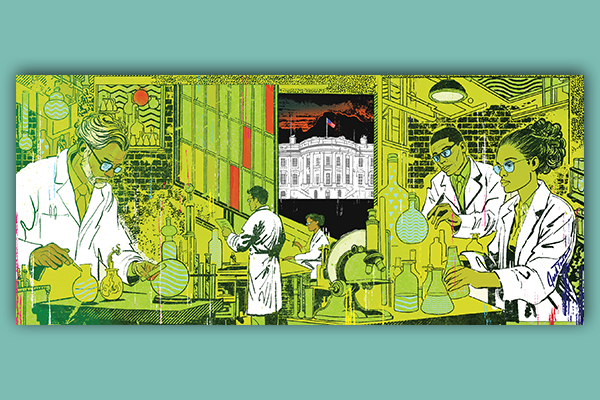When I was just shy of 18, I watched my mother die of chronic lymphocytic leukemia. CLL killed her less than two years after diagnosis. She was 51. Fast forward a few decades: Over the past 30 years, researchers have discovered biomarkers for a variety of cancers, including CLL, which can aid in diagnosis, assessing prognosis, and developing new, more targeted treatments. We know all this because of uncountable experiments over many years in hundreds of labs, any one of which might be studying some single molecular-level phenomenon that to a lay person would seem insignificant. But through expertise, collaboration, and time, the work of a given group of researchers joins with that of others to, for example, connect the dots between this gene mutation and that protein and this prognosis and that new treatment. The microscopic swells to become a few more years with someone you love.
In the U.S., these advancements have been fueled in large part by the National Institutes of Health, through grants that annually support more than 300,000 biomedical researchers at more than 2,500 different institutions. Through the NIH, the National Science Foundation, and other government entities, the U.S. has funded more scientific research through our tax dollars than any other country. NIH funding supports research on a range of illnesses, substance abuse, health disparities, and drug development. It also contributes to local economies. In 2023, every dollar given in grants generated more than $2 of economic activity. It has been a powerful model of building good things through investing in individuals, institutions, collaboration, and a shared future.
Massive budget cuts, firings, and grant freezes threaten the NIH and future scientific progress. It’s just one piece of the chaotic rush by President Donald Trump and billionaire sidekick Elon Musk to dismantle and discredit government agencies and institutions under the guise of cutting costs and uprooting fraud, all while stoking unfettered bigotry.
Read the Full Article

